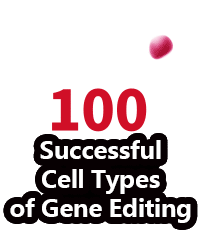US Senators Call for International Guidelines for Germline Editing
In the wake of reports of CRISPRed babies born in China, a bipartisan resolution “opposes the experiments that resulted in pregnancies using genome-edited human embryos.”Senators Dianne Feinstein (D-CA), Marco Rubio (R-FL), and Jack Reed (D-RI) introduced a resolution yesterday (July 15) calling for global collaboration in developing guidelines for the use of gene editing technologies in the context of reproduction. The senators specifically pledge their support for the international commission established in May by the US National Academy of Medicine, the US National Academy of Sciences, and the Royal Society of the UK to develop a framework for scientific research into the use of germline editing, and encourages the US Secretary of State to help “forge an international consensus regarding the limits of ethical clinical use of genome-edited human embryos.”
“Gene editing is a powerful technology that has the potential to lead to new therapies for devastating and previously untreatable diseases,” Feinstein says in a statement. “However, like any new technology, there is potential for misuse. The international community must establish standards for gene-editing research to develop global ethical principles and prevent unethical researchers from moving to whichever country has the loosest regulations.” (Editing embryos for reproductive purposes is already illegal in the US.)
In addition, the resolution makes clear that the trio of senators “opposes the experiments that resulted in pregnancies using genome-edited human embryos”—referring to the revelation last fall that researcher He Jiankui had CRISPRed the genomes of two babies born in China.
See “CRISPR Scientists Slam Methods Used on Gene-Edited Babies”
The resolution “stands out,” STAT reports, because the scientific community is engaging in work that could employ gene editing to prevent genetic disease, and “some members of Congress have recently expressed some openness to lifting the ban on editing embryos used to start pregnancies.”
Ubigene Biosciences is co-founded by biological academics and elites from China, the United States, and France. We are located in Guangzhou Science City, which serves as a global center for high technology and innovation. Ubigene Biosciences has 1000㎡ office areas and laboratories, involving genome editing, cell biology technology, and zebrafish research. We provide products and services for plasmids, viruses, cells, and zebrafish. We aim to provide customers with better gene-editing tools for cell or animal research.
We developed CRISPR-U™ and CRISPR-B™(based on CRISPR/Cas9 technology) which is more efficient than general CRISPR/Cas9 in double-strand breaking, CRISPR-U™ and CRISPR-B™ can greatly improve the efficiency of homologous recombination, easily achieve knockout (KO), point mutation (PM) and knockin (KI) in vitro and in vivo.
Genome Editing Platform
——Focusing on the Application of CRISPR-U™ and CRISPR-B™ Gene Editing Technology
Cell Biology Platform
——Focusing on primary cell
2. Provides culture strategies and related products for different cell types.3. Provides cell biology-related services such as cell isolation, extraction and validation.
